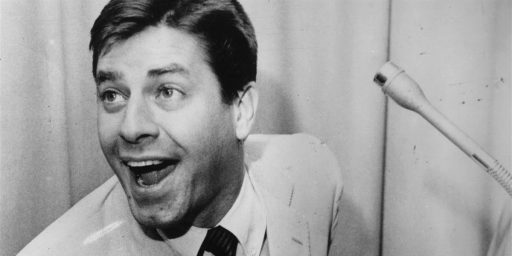Court Rules Against Sanitizing Films
A judge has ruled against CleanFlicks and others who rent “sanitized” versions of Hollywood movies that delete sex, violence, and profanity.
Sanitizing movies on DVD or VHS tape violates federal copyright laws, and several companies that scrub films must turn over their inventory to Hollywood studios, an appeals judge ruled. Editing movies to delete objectionable language, sex and violence is an “illegitimate business” that hurts Hollywood studios and directors who own the movie rights, said U.S. District Judge Richard P. Matsch in a decision released Thursday in Denver. “Their (studios and directors) objective … is to stop the infringement because of its irreparable injury to the creative artistic expression in the copyrighted movies,” the judge wrote. “There is a public interest in providing such protection.”
Matsch ordered the companies named in the suit, including CleanFlicks, Play It Clean Video and CleanFilms, to stop “producing, manufacturing, creating” and renting edited movies. The businesses also must turn over their inventory to the movie studios within five days of the ruling.
“We’re disappointed,” CleanFlicks chief executive Ray Lines said. “This is a typical case of David vs. Goliath, but in this case, Hollywood rewrote the ending. We’re going to continue to fight.”
CleanFlicks produces and distributes sanitized copies of Hollywood films on DVD by burning edited versions of movies onto blank discs. The scrubbed films are sold over the Internet and to video stores. As many as 90 video stores nationwide — about half of them in Utah — purchase movies from CleanFlicks, Lines said. It’s unclear how the ruling may effect those stores.
The controversy began in 1998 when the owners of Sunrise Family Video began deleting scenes from “Titanic” that showed a naked Kate Winslet. The scrubbing caused an uproar in Hollywood, resulting in several lawsuits and countersuits.
The right of the people to see Kate Winslet’s nude butt shall not be infringed and all that.
As to the merits, this one strikes me as a slam dunk. Obviously, copyright holders have a right to control the distribution of its materials and demand that it be kept intact until the point of sale. If end users want to use technology that skips past curse words and whatnot at home, that’s obviously their right.
I admit, however, that it might be amusing to see, say, “Pulp Fiction” in its sanitized form. It’d certainly be much shorter.






“Hey! The trailer was longer than this!”
I know next to nothing about the legal aspects of this case. But I am somewhat mystified as to why Hollywood movie producers would care about the sanitizing films phenomenon. Presumably the purchasers of “Clean Flicks” still have to buy the DVDs. Hollywood seems to have no difficulties with sanitized versions of films showing on airlines. What is the threat here?
I disagree with your view that the case is a slam dunk. From what I understand, it’s not a case where CleanFlicks buys one copy of the movie and then makes multiple sanitized copies to sell. For each sanitized copy the sell they purchase a copy of of the original, and you actually get both when you order.
So the original creators aren’t losing any income from this. What this ruling says is that the creators have a right to certain requirements on HOW you watch their movie.
Lousy ruling. Functionally, this should be first-sale doctrine. I’m guessing the judge ruled that because more than one copy is made in the process of getting to the one scrubbed copy, it’s violation. Bah.
SD and jpe:
From my (admittedly, limited) understanding of intellectual property law, aside from satire and other “fair use” of materials, copyright holders have a right to control how their works are distributed for sale. They can’t control what you do with it for personal use when you buy it but what these companies is doing is commercial. What they’re “selling” is an illegal, derivative copy of someone else’s work.
Not so very long ago there was a case when a church hosted a holiday festival and passed out to attendees a handout with the words of a copyrighted gospel song. Under the Commons Copyright License, that was okay. But the song leader told everyone to sing the song to an old hymn whose musical meter fit the gospel song perfectly.
This kind of singing used to be very common – it was a fad for a few short years to swap hymns’ words and music around to do something different.
Anyway, the gospel song’s copyright holder found out this was going on convinced a judge to issue a cease-and-desist order. Their case was the the copyrighted work was a unity and that even having a CCL did not permit separation of words and music.
As I recall, Rogers and Hammerstein brought a similar action decades ago and prevailed.
I suspect this has to be a narrow interpretation.
Companies buy Lincoln town cars, cut them in half, add some seats/sheet metal and sell them as limousines. A clearly derivative work that “infringes” the original artist doing the styling. Likewise if you take a car in to get it painted.
As near as I can tell, the entire case rests on the fact that even though a copy is bought for every movie, they copy the movie to another DVD without the naughty bits. Now my understanding is that if I copy a movie onto my hard drive, I have violated the copyright (even if I did no editing). So if all they did was buy a movie, copy it to another disc (no editing), destroy the original disk and send it on, they violated the copyright. As it happens, there are companies, for example operating in the Caribbean, who sell programs that allow you to rip a DVD movie and copy it to another disk or hard drive. You down load the program over the Internet and they give you free updates as required if new movies have new tricks.
I suspect that the impact of this decision would be for some enterprising Caribbean entrepreneur to set up shop doing this same sort of thing. Take the basic ripper program, add in the movie specific editing (remove 13 seconds of the movie starting at 37 minutes, 13.6 seconds into the movie) and you have a new product. You could even enhance the feature by allowing you to edit out what ever you want and leave the rest. One person might edit out the nudity but leave the cursing. Another might edit out anything that wasn’t nudity. Of course each individual copy of the edited movie becomes a copyright violation, but that is much harder to stop than the natural choke point of the CleanFlicks company.
So I don’t think the issue is that the copyright holders have control until the point of sale (the point of sale occurred when the company bought their discs). The copyright law is much broader than that and includes what you can do with it after the point of sale. And technology is likely to already make the question moot unless you are willing to go after individuals.
I don’t see what’s so “obvious” about that, except in the sense that we’re talking about copyright law, where the general rule seems to be that what Hollywood wants, Hollywood gets. In any other line of business, once you sell your good to a distributor, “your” good isn’t yours anymore, and if you don’t like the way he’s distributing “your” product, your only recourse is to stop selling it to him.
Oh yeah, one more thing: what gave the Ass. Press the idea that U.S. District Judge Richard P. Matsch is an “appellate” judge?